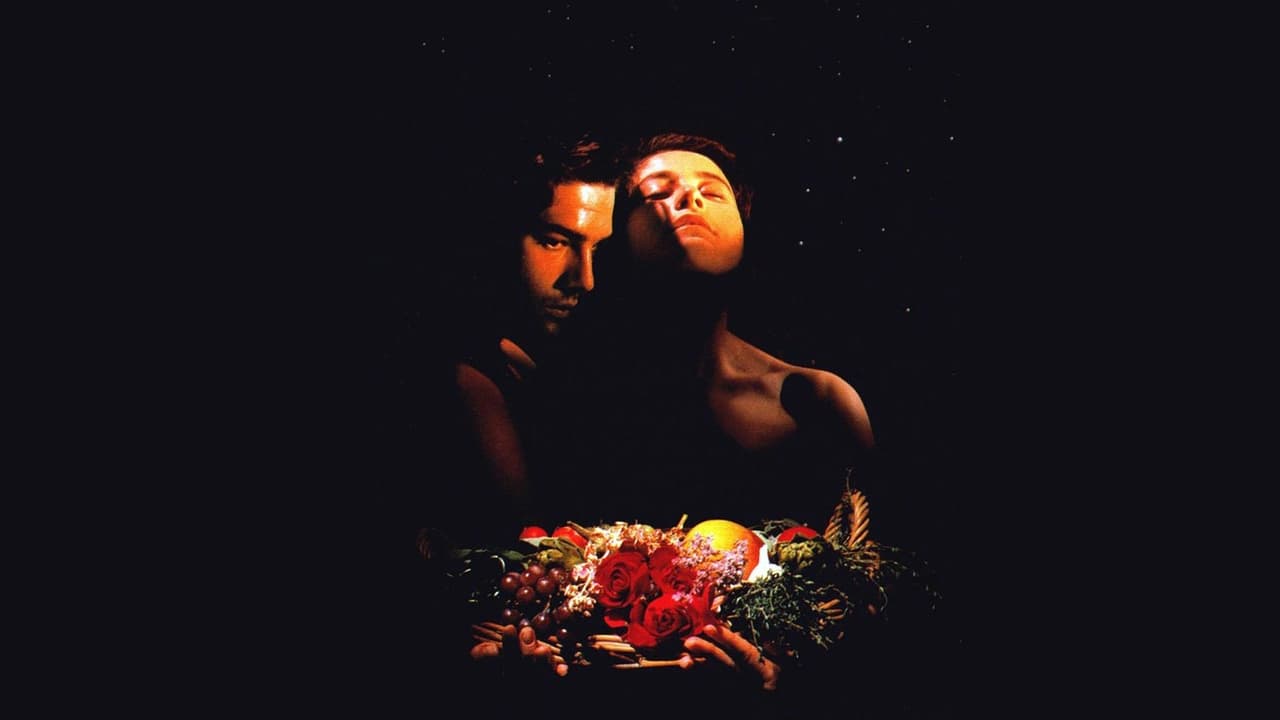

n my opinion it was a great movie with some interesting elements, even though having some plot holes and the ending probably was just too messy and crammed together, but still fun to watch and not your casual movie that is similar to all other ones.
... View MoreA lot of perfectly good film show their cards early, establish a unique premise and let the audience explore a topic at a leisurely pace, without much in terms of surprise. this film is not one of those films.
... View MoreI think this is a new genre that they're all sort of working their way through it and haven't got all the kinks worked out yet but it's a genre that works for me.
... View MoreThere are moments that feel comical, some horrific, and some downright inspiring but the tonal shifts hardly matter as the end results come to a film that's perfect for this time.
... View MoreTita (Lumi Cavazos) was born in the kitchen in 1895 Rio Grande, Mexico. After the death of her father, her mother vows to force her youngest Tita to care for her entire life. Tita grows up in the kitchen with servant Nacha. She falls in love with Pedro Muzquiz but her mother refuses to permit her to marry. Her mother offers older sister Rosaura and Pedro accepts hoping to stay close to Tita. Tita's tears infuse the wedding cake with her sadness.This has a great magically realism. It's a fable of food, family, and passion. The story is fun and fanciful. Lumi Cavazos is a sweet endearing lead. The only drawback is the limited chemistry in the epic romance. It's probably asking too much. They don't have much time together before they have to be Romeo and Juliet. Then they have to be apart. It's submerged passion and Pedro doesn't always come across well.
... View MoreThis movie requires the viewer to accept an absurdity that I'm simply unable to accept. The supposed family tradition that forbids the youngest daughter's marrying so that she can devote her whole life to caring for her mother is totally unbelievable.The tradition itself is stupid enough, but the fact that the daughter just meekly accepts such capricious and despicable treatment, when there's a houseful of servants to cater to the mother's every whim, makes the condition even more absurd and the spineless daughter totally unsympathetic. Who cares what happens to a person with so little self-respect?Suspension of disbelief is one thing, but I am unable to force myself to swallow such a preposterous contrivance just to make this silly story work.
... View MoreI didn't read the book, so if you've read the book, you might like this movie less than I did. The story is a good folk tale, and gives one insight into some aspects of Latino culture (i.e., traditions & so much more are often passed down through food; the strange traditions regarding family duty, even in the face of common sense). While watching the movie, I suspected the book is better, and I have been told by others that it is. The actor who played John was very exaggerated, although I don't know if that was done on purpose. Further, I had problems with Pedro's initial decision (the big one); as Tita later points out, there seem to have been many other decisions that would have made much more sense. Warning: this is a chick flick! In the end, though, my identity as a hispanic edged out my identity as a manly man, so I consider this movie worth watching, since the story is worth having in your cultural hard-drive.For more reviews and a kickass podcast, check out: www.livemancave.com
... View MoreThis movie would certainly receive it. After reading the novel, I was really anticipating seeing the movie. The book has excellent imagery, and the plot is extremely captivating. As I was watching the movie, however, I noticed that some things did not make sense. First of all, the novel is just as much about food as it is about forbidden love. So much so that even the title involves food, and every single chapter is based around a certain recipe that is important to the De la Garza's family history. Then why is it that there are so few scenes involving food in the movie? When Tita makes the cake for Rosaura's wedding that makes everyone vomit, there is no visual depiction of her tears flowing into the frosting which is essential to the guests reaction to the cake. What happened to the wonderful description of this scene that is in the novel? Didn't the director find that at all necessary to the plot? I guess not. Another complaint I have is the awful use(and sometimes lack there-of) of magical realism that is described in the novel. Tita's birth is badly filmed and obviously fake. And what about the flood of tears Tita cries after Chencha gives her the ox-tail soup? That appears to also have been unimportant to the director to add into the film, even though it makes for such a touching scene in the novel. Finally, I find the depiction of the Mexican Revolution in the film completely offensive and uncalled for. The director made it seem like the Revolution was so fine and dandy, with the soldiers happily dancing and making cream- fritters. The horribly stereotypical Mariachi music played whenever the soldiers come on camera also makes the film seem quite ridiculous. You can really tell that Esquivel and the director of the film were catering to the Hollywood crowd and not to people who actually understand the seriousness of revolution and how important it was to Mexico. Overall,the bad acting, the telenovela-esque music, and the straying from the original plot made this movie in my opinion, a complete and utter disappointment.
... View More